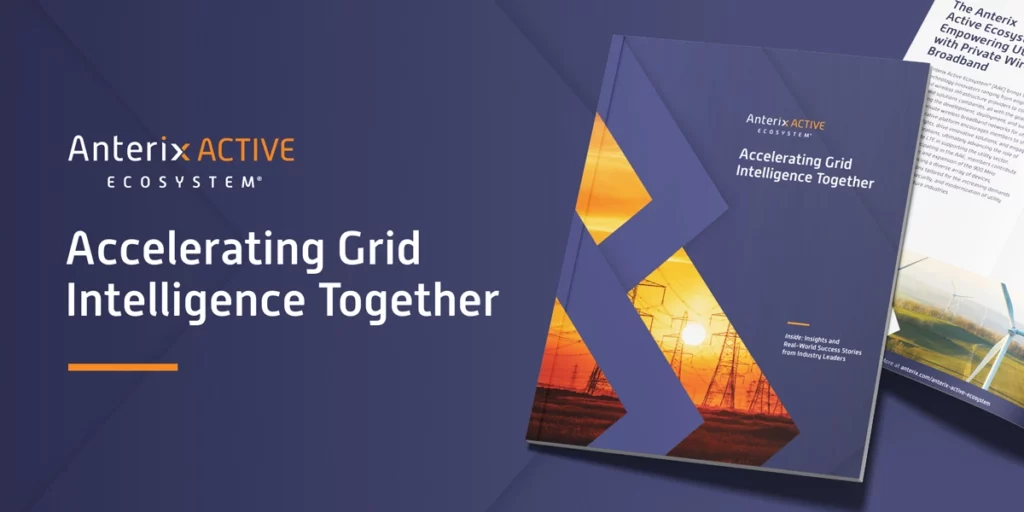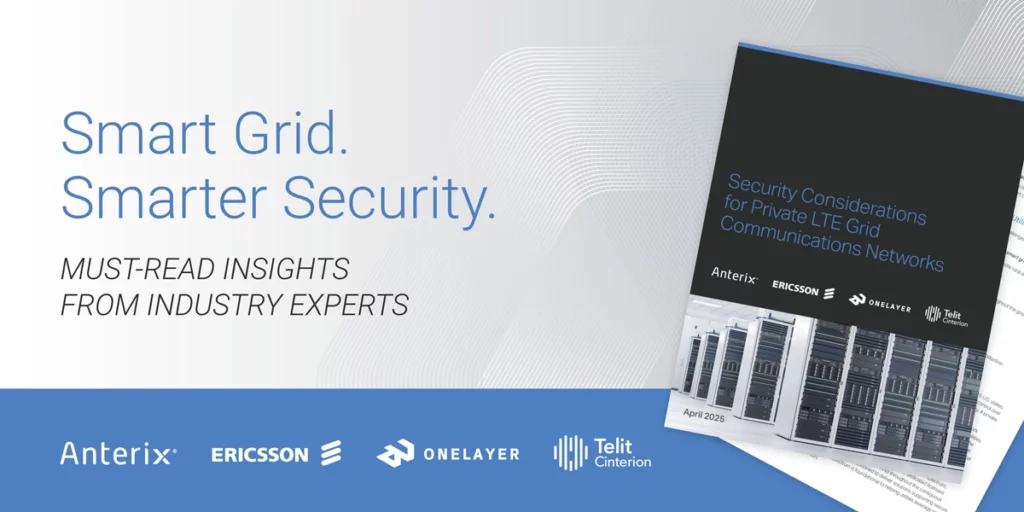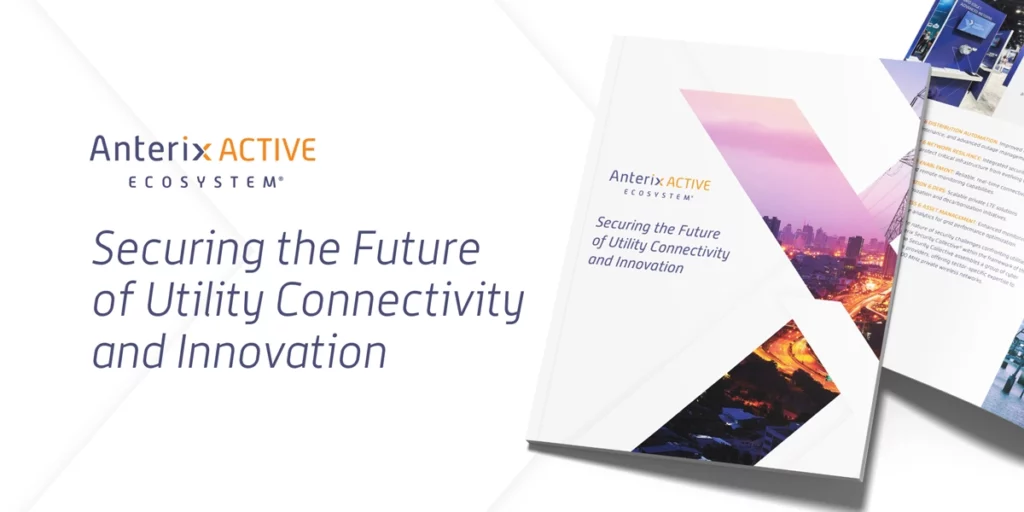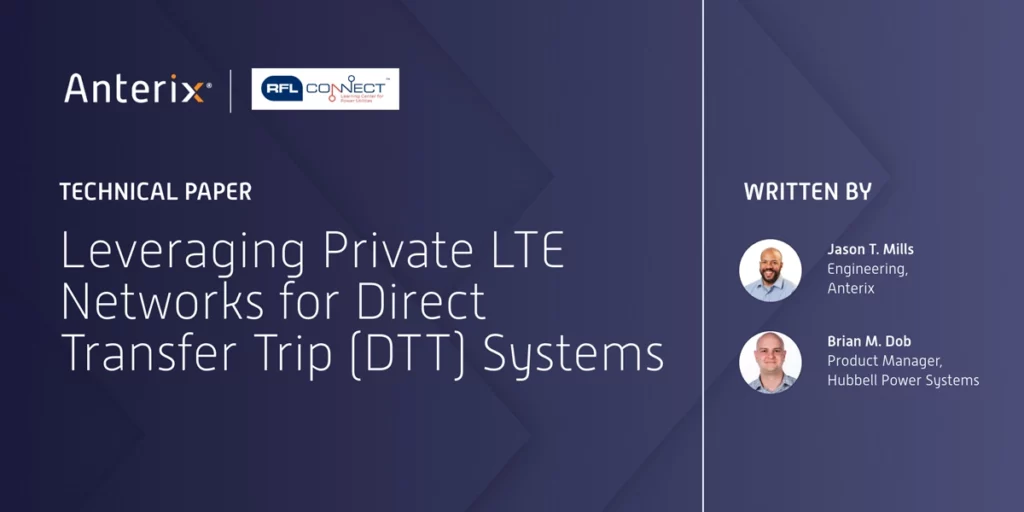Documents
Accelerating Grid Intelligence Together (Anterix Magazine)
Discover how Anterix and 125+ ecosystem members are accelerating grid modernization with 900 MHz private LTE. This special edition magazine recaps DISTRIBUTECH 2025 and showcases real-world solutions for utility innovation.
Read MoreSecurity Considerations for Private LTE Grid Communications Networks
As the utility grid advances to become digitized and smarter, it also becomes more vulnerable to cyber-attacks. This paper brings together industry experts to discuss smart grid infrastructure requirements and how a security-focused architecture comprised of smart edge devices and edge data processing, interoperating networks, secure data flows and controls are help mitigate risk and…
Read MoreUnlock the Power of the Anterix Active Ecosystem
Your Guide to AcceleratingPrivate Wireless for Utilities Discover how the Anterix Active Ecosystem (AAE) is bringing together 125+ leading technology innovators to drive the future of 900 MHz private wireless broadband. Our latest brochure dives into how utilities can benefit from a growing ecosystem of validated technologies, enhanced security solutions, and real-time operational efficiencies tailored for the evolving energy landscape.…
Read MoreLeveraging Private LTE Networks for Direct Transfer Trip (DTT) Systems
Explore how Private LTE improves reliability and latency for Direct Transfer Trip (DTT) systems in DER interconnections. Co-authored with Hubbell Power Systems, this paper shares lab-tested results showing how Private LTE delivers consistent, mission-critical performance for anti-islanding protection.
Read MoreSolution Overview: Gas Utilities
American gas utilities operate networks with millions of miles of pipelines, requiring constant monitoring of pressure, flow, and levels to ensure safety and reliability. Real-time alerts and system-wide visibility supported by modern communications systems are essential for optimizing gas utility operations, detecting leaks early, providing safety, and improving efficiency. While utilities make every effort to…
Read More




